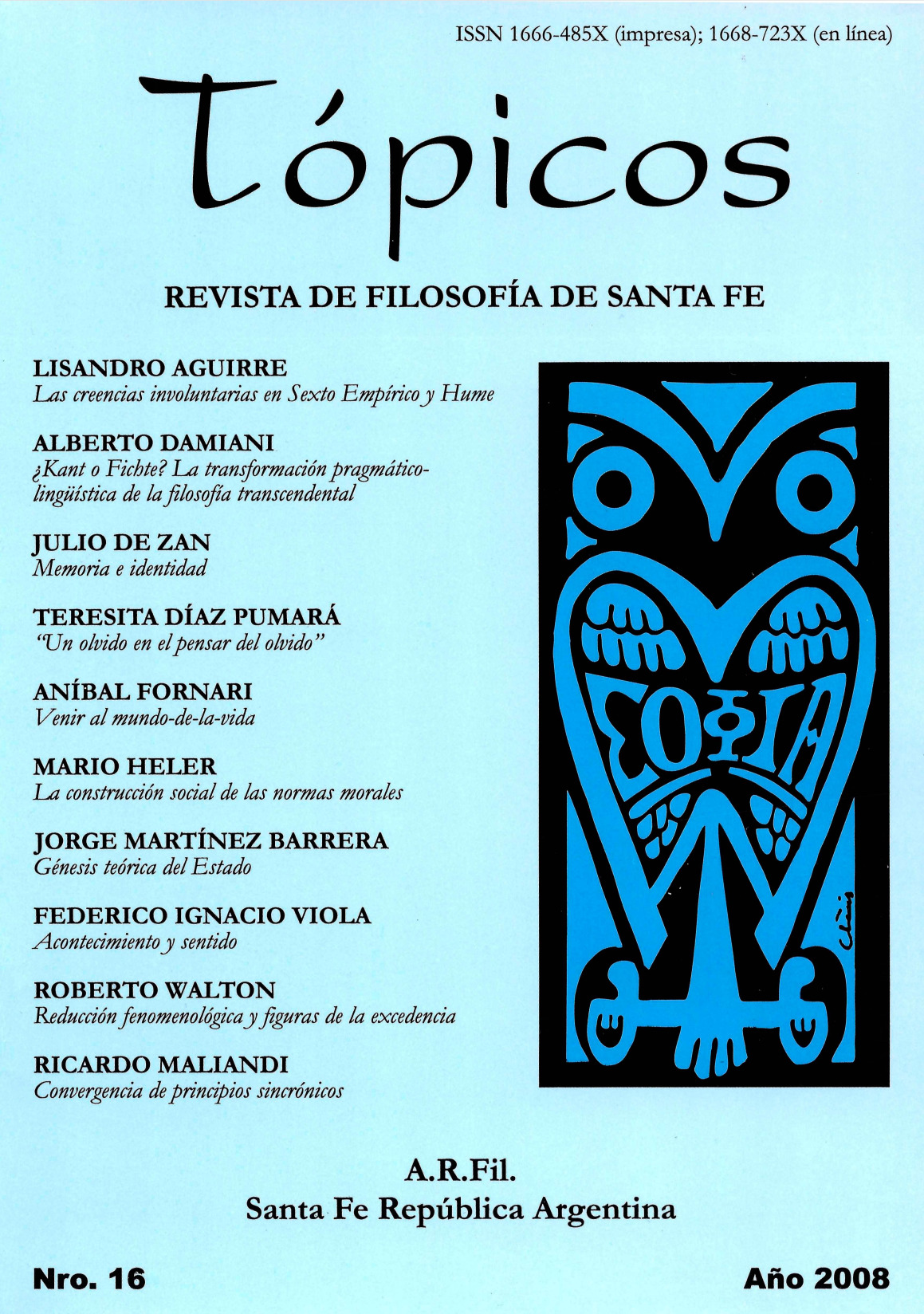Memoria e identidad
DOI:
https://doi.org/10.14409/topicos.v0i16.7492Palabras clave:
memoria, historia, olvido, identidadResumen
En primer término se muestra fenomenológicamente el papel esencial de la memoria (y del olvido) en la constitución de la identidad (l). Se avanza luego el análisis crítico de los usos de la memoria y de su relación con la historia escrita (2), para introducir en el tema de las políticas de la memoria colectiva (3), y revisar las políticas de identidad del Estado moderno (4). El artículo se refiere en su parte central al hecho de que en los comienzos del Siglo XXI experimentamos que las políticas de la memoria y del olvido del Siglo XIX ya no funcionan con respecto a las nuevas heridas que la memoria viva arrastra del Siglo XX, y la reconciliación mediante aquel tipo de elaboraciones no es posible (5). La cuestión seria de la memoria viva no está ligada ya a la historiografía de los acontecimientos fundacionales del estado nación en el pasado remoto, sino que está ligada a otros acontecimientos trágicos de la historia reciente de la sociedad en que vivimos (6). En las sociedades posmodernas se asiste a una redefinición de las identidades políticas tradicionales y a la formación de nuevas identidades posnacionales ligadas a la memoria trágica de los genocidios y al compromiso moral y político del “nunca más” (7).
















